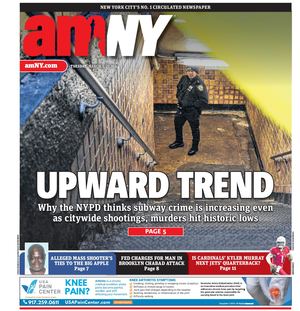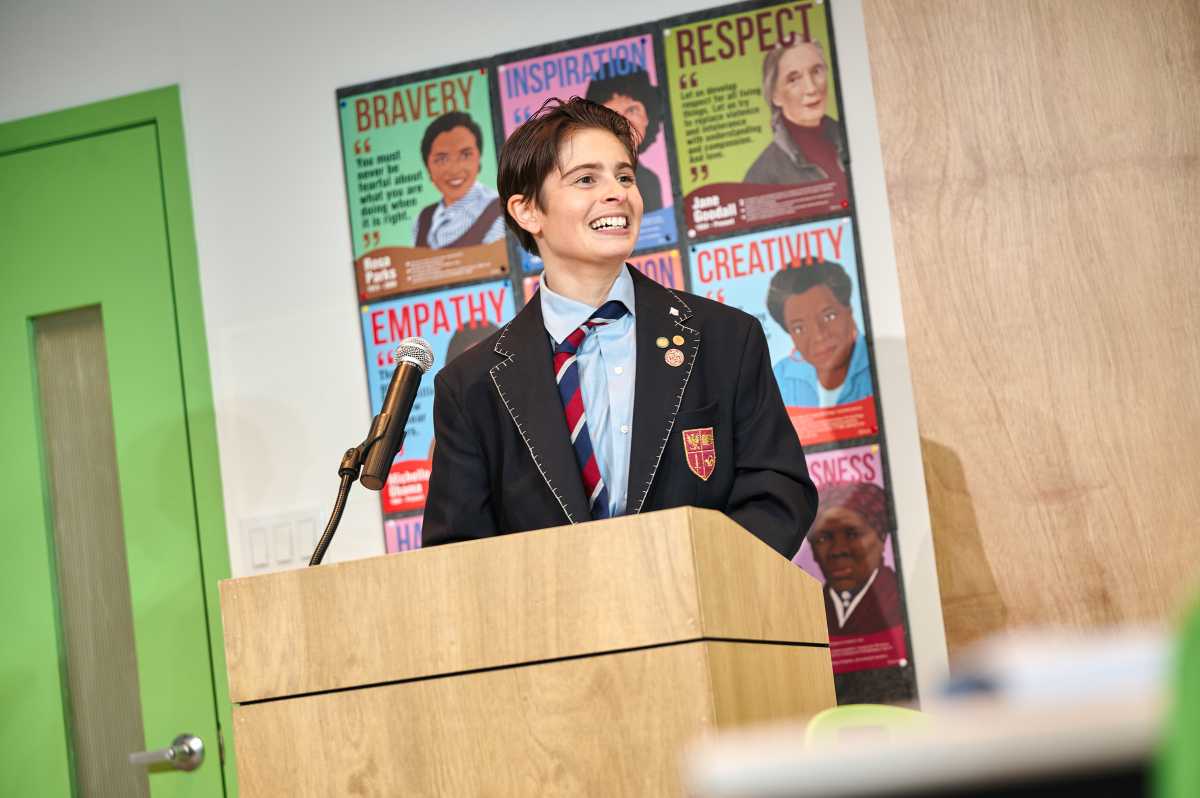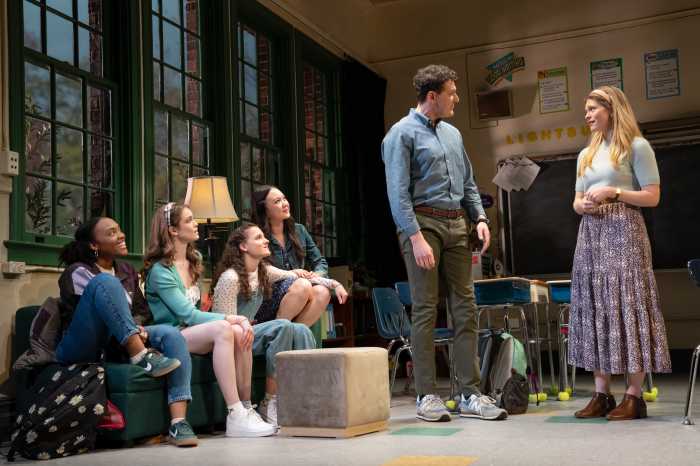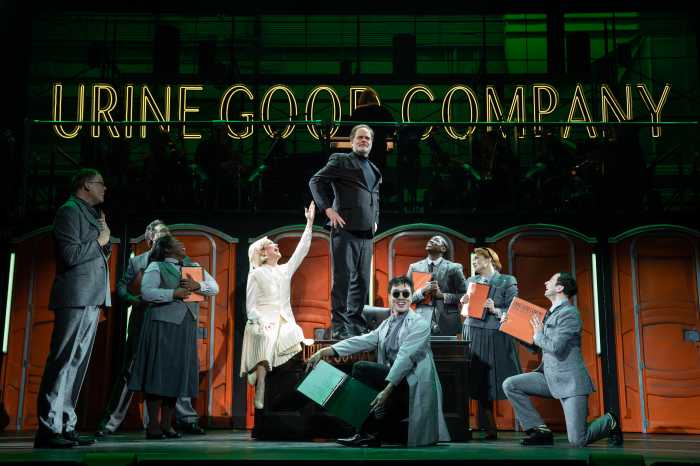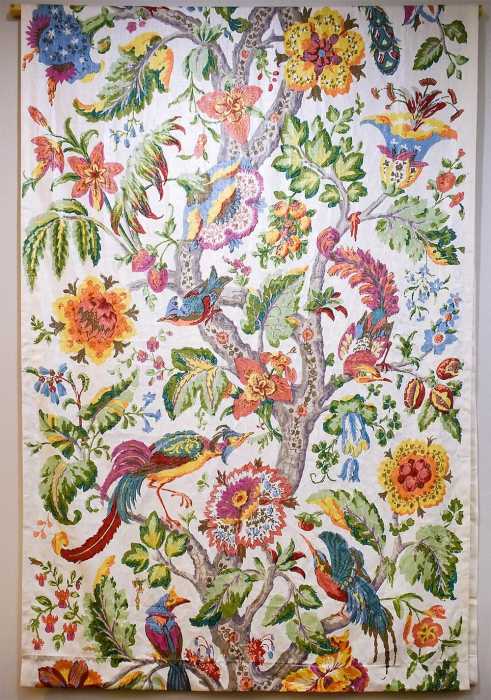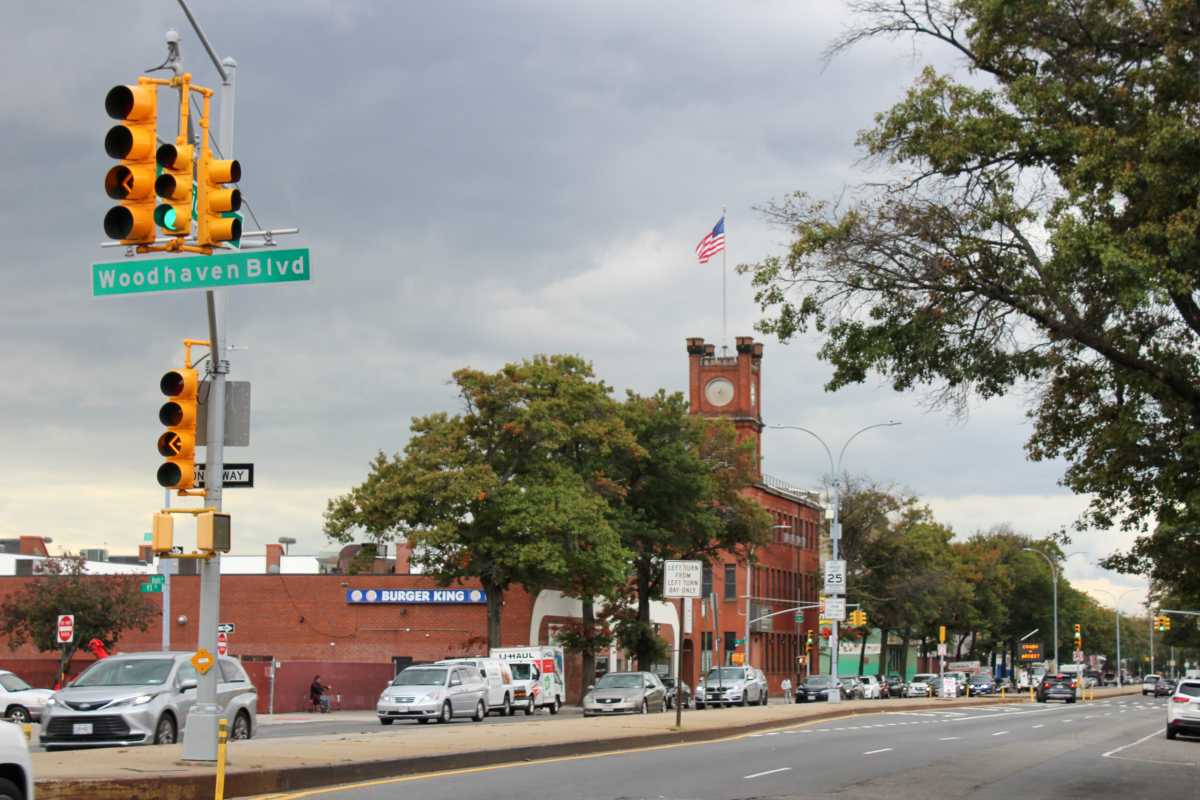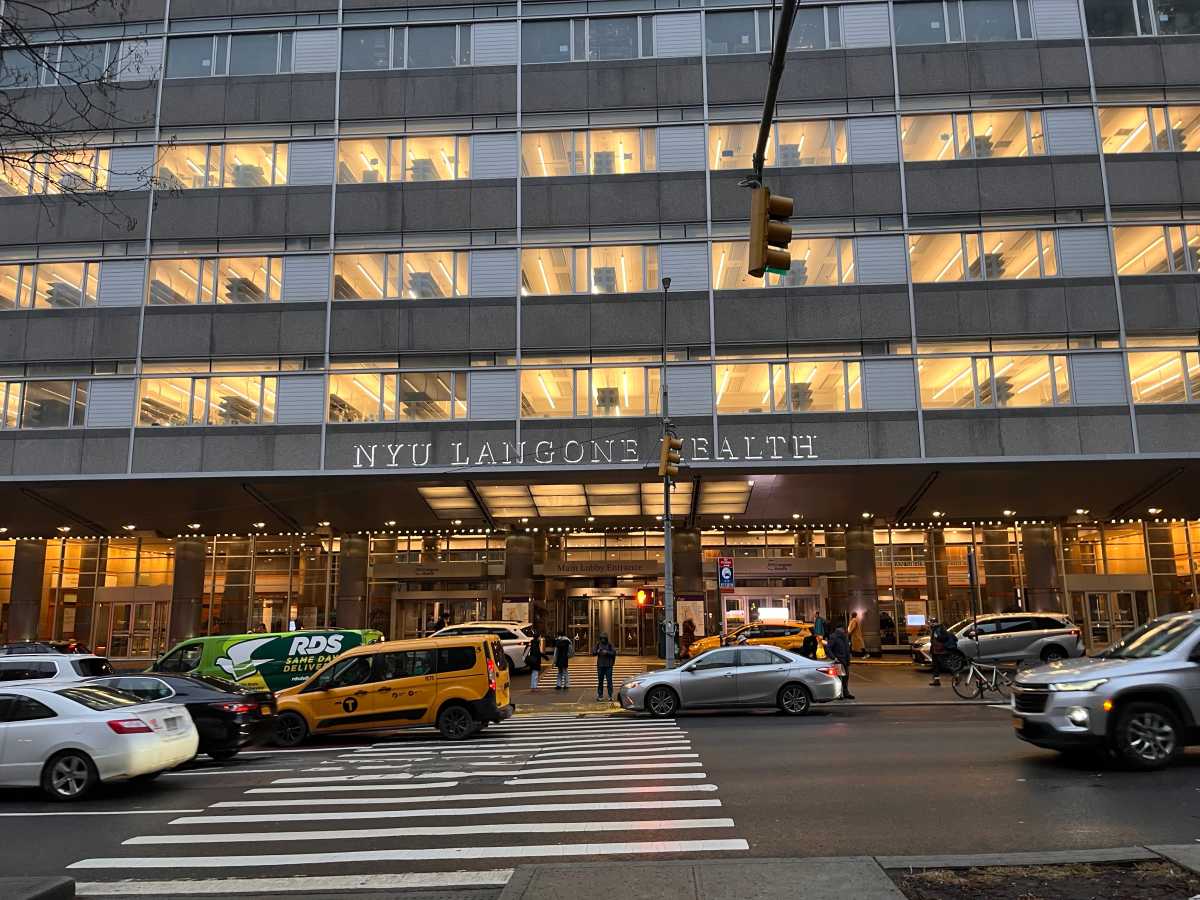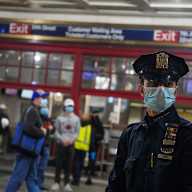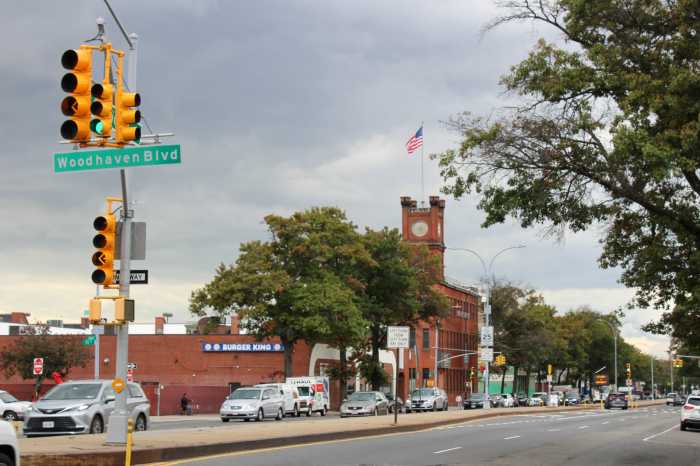Tony Award-winning director Danya Taymor, whose emotionally charged and deeply human production of Kimberly Belflower’s “John Proctor is the Villain” continues to resonate on Broadway, now returns Off-Broadway with “Trophy Boys,” another play centered on high school students grappling with issues of gender, power, and accountability.
On paper, the two plays sound thematically aligned as contemporary, issue-driven high school dramas punctuated with pop culture and political awareness. But in execution, “Trophy Boys” plays out as a far more cerebral and stylized experiment. Where “John Proctor” pulses with emotional urgency and richly drawn characters, “Trophy Boys” is thin, arch, and more thesis than theater.
Set in the sterile classroom of an elite Manhattan girls’ school, where portraits of iconic women stare down from the walls, the 70-minute play follows four overconfident teenage boys as they prepare for an upcoming debate. Their challenge: Argue that feminism has failed women while still sounding like feminists and liberal-minded allies.
What begins as a glib, gleefully offensive exercise in rhetorical one-upmanship quickly turns when an anonymous social media post accuses one of them of sexual assault, throwing the group into disarray as they try to determine who’s been targeted, what exactly happened, and how best to manage the fallout.
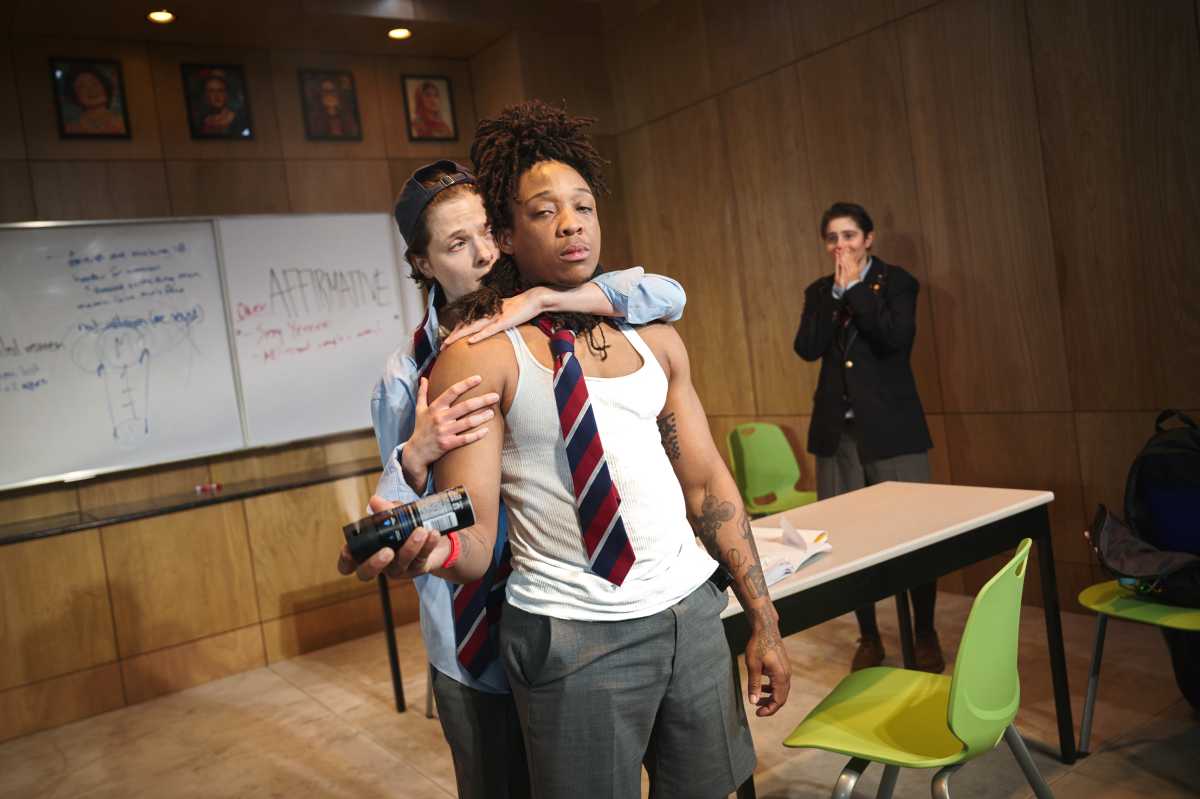
Emmanuelle Mattana, herself a former competitive debater, skewers both the moral flexibility of privileged young men and the culture of debate, where the ability to argue any side, no matter how ethically compromised, is treated as a virtue
All four characters are played in drag by performers who identify as women or non-binary. Mattana herself plays Owen, the ringleader of the group. Although this underscores the play’s critique of masculinity as performance, it draws so much attention to itself that it overwhelms the drama.
Taymor stages the play with a sharp eye for satire, leaning into its physicality. At times, the boys burst into exaggerated, pseudo-sexual dance routines during their debate sessions, grinding to the beat in choreographed absurdity. However, after the accusation is made, the performances shift: the campy bravado gives way to a more subdued, naturalistic tone, revealing the cracks beneath their posturing and hinting at the real fear lurking underneath.
And yet, the play struggles to develop these characters beyond the surface. Unlike “John Proctor,” which built a believable emotional world and gave its ensemble space to breathe, “Trophy Boys” keeps its characters locked in a performative loop. They speak in the same rhythm, share the same rhetorical flair, and rarely emerge as distinct personalities. A fleeting revelation of a same-sex crush adds a note of personal vulnerability, but it feels more like a narrative detour than a fully integrated character moment.
There is a striking tonal shift at the end, when the performers drop the heightened male personas and embody young women who are attempting to speak up about sexual assault but are quickly overwhelmed by rapid-fire questioning. It’s a sobering turn that hints at the deeper emotional currents that might have made the play more resonant had they been woven in earlier.
There’s no question that “Trophy Boys” speaks to relevant cultural contradictions, from the dissonance between liberal values and private behavior to the hollowness of intellectual posturing in the face of real harm. But the play’s commitment to satire and meta-theatricality undercuts its dramatic impact.
Where “John Proctor” moved and surprised with its emotional authenticity, “Trophy Boys” keeps its audience at arm’s length, content to provoke but not to connect.
MCC Theater, 511 West 52nd St., mcctheater.org. Through July 27.
